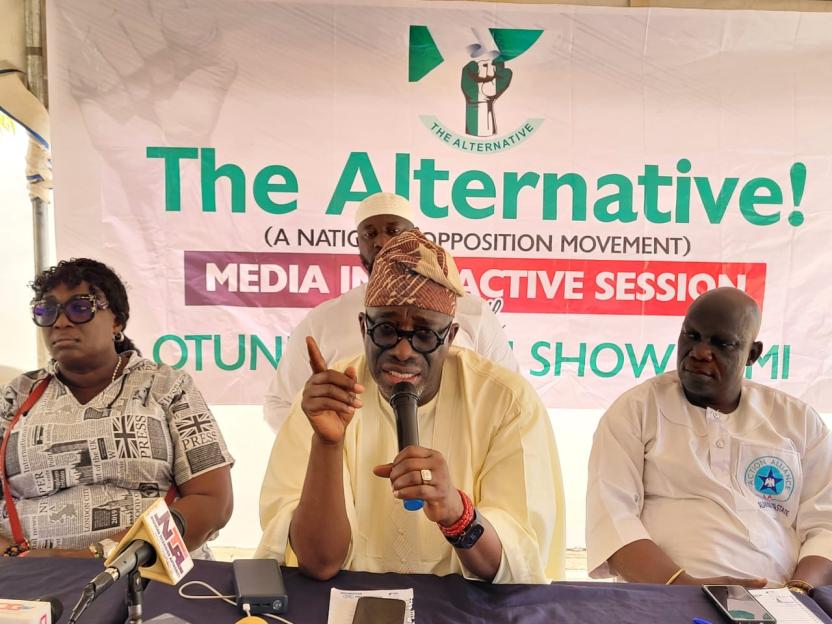A legal practitioner, Onyedikachi Ifedi, has said the continued trial of the Biafra nation agitator, Mazi Nnamdi Kanu on terrorism charges is an affront to the African Charter on Human and Peoples’ Rights.
Nnamdi Kanu’s trial is being carried out at the Federal High Court in Abuja by the federal government upon his extraordinary rendition from Kenya.
However, the lawyer argued that the African Charter on Human and Peoples’ Rights explicitly prohibited extraordinary rendition and inhuman treatment as done to Kanu, by the federal government in the Kenya abduction episode.
He submitted that since the African Charter prohibited extraordinary rendition and is part of the Nigerian law, prosecution of Kanu had become voided and unnecessary on the strength of the abduction.
According to him, to allow a prosecution tainted by kidnapping and torture to proceed against the Biafran leader is expressly forbidden by the Charter and confirmed by the larger constitutional bench of the Supreme Court of Nigeria.
The legal practitioner made his position known in a statement he issued to the media.
He submitted that the December 15, 2023 judgment of the Supreme Court by a five-man panel being used to prosecute Kanu was a great error because a seven-man panel of the same court had in the past frowned at such a situation when extraordinary rendition is involved.
According to him, the African Charter on Human, Peoples’ Rights prohibited extraordinary rendition as done to Kanu by the federal government and that since the African Charter is part of the Nigerian law, the trial of Kanu for whatever reason, is automatically forbidden.
Faulting the December 2023 apex court verdict, the lawyer noted that “in one breath, the verdict stripped Mazi Nnamdi Kanu of every protection guaranteed under the African Charter on Human and Peoples’ Rights, protections enshrined in Nigerian law by the African Charter (Ratification and Enforcement) Act.
“In another breath, the same judgment is purported to remit Kanu for trial on repealed charges.
“This was not merely a miscarriage of justice. It was a judicial mutiny against the Constitution, the African Charter and binding precedent.
This is not a mere error. It is per incuriam — delivered in ignorance of binding law — and thus a legal nullity.
He cited Supreme Court of Nigeria in a matter between General Sanni Abacha & Ors vs. Chief Gani Fawehinmi (2000) 6 NWLR (Pt. 660) 228, where a full constitutional panel of seven Justices of the Supreme Court spoke on the status of African Charter (Ratification and Enforcement) Act.
He submitted that the Supreme Court in the matter of Abacha and Gani Fawehinmi made it clear that the African Charter is enforceable in Nigerian courts as domestic law.
According to him, the Supreme Court made it clear that the African Charter is on the same pedestal as Chapter IV of the 1999 Constitution in guaranteeing fundamental rights and that any Nigerian law, policy, or act of the State inconsistent with the Charter’s provisions is void.
According to him, “This decision is binding law. Under the doctrine of stare decisis, a smaller panel of the Supreme Court is bound by it. Only an equal or larger panel can depart from it.
“In Osho vs. Foreign Finance Corporation (1991) 4 NWLR (Pt. 184) 157 at 188: “A smaller panel is bound by the decision of a larger panel.” Oladokun v. Military Governor of Oyo State (1996) 8 NWLR (Pt. 467) 387: “Hierarchy within the same court is determined by panel size; larger panel decisions prevail.”
“Abacha vs. Fawehinmi remains the gold standard for the African Charter’s domestic enforceability.
“When the African Charter was domesticated, it became part of Nigerian law with constitutional force. It is not a mere statute; it is a Bill of Rights rooted in both Nigerian and international obligations.
“By discarding it, the FRN vs. Kanu panel did violence to the Constitution itself. No court of law can stand on such a foundation without becoming an engine of oppression.
“If this perverse precedent is allowed to stand, no Nigerian citizen will have meaningful human rights protections in cases involving state violence.
“The rule of law will be replaced by the rule of judicial convenience.The Supreme Court’s integrity will sink beneath the weight of its own lawlessness.
“The FRN vs. Kanu decision is void for failure to adhere to stare decisis and for arrogating to a five-man panel the unlawful power to overturn the decision of a seven-man constitutional bench.
“History will remember this case not as law, but as a monument to judicial betrayal, the day the Supreme Court of Nigeria broke its own oath and buried the African Charter alongside the Constitution”, he submitted.
The lawyer appealed to the federal government to adhere to the judgment of the Court of Appeal in Abuja which effectively voided the trial of Kanu, discharged and acquitted him on breach of his fundamental rights.
He specifically pleaded that the judgment be invoked by government to terminate the trial and allow the IPOB leader enjoy his deserved freedom.







